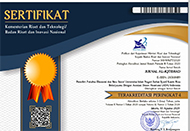Mental Accounting in Business and Taxation: A Bibliometric Analysis
Abstract
Keywords
References
Adamopoulos, P., Todri, V., & Ghose, A. (2021). Demand effects of the internet-of-things sales channel: Evidence from automating the purchase process. Information Systems Research, 32(1), 238–267. https://doi.org/10.1287/isre.2020.0962
Ajzen, I. (1991). The Theory of planned behavior. Organizational Behavior and Human Decision Processes.
B Javareshk, M. (2024). The Psychology of Mental Accounting. (Doctoral Dissertation, University of Leicester).
Bidin, Z., & Abd Weheed, N. S. A. (2023). Business Income Tax Compliance Behavior Among Sole Proprietorships in Penang 6TH LIMC 2023, 422. 6th LIMC, 422.
Boateng, K., Omane-Antwi, K. B., & Ndori Queku, Y. (2022). Tax Risk Assessment, Financial Constraints and Tax Compliance: A Bibliometric Analysis. Cogent Business & Management, 9(1), 2150117.
Chambers, V., & Spencer, M. (2008). Does changing the timing of a yearly individual tax refund change the amount spent vs. saved? Journal of Economic Psychology, 29(6), 856–862. https://doi.org/10.1016/j.joep.2008.04.001
Costa, D. F., Carvalho, F. D. M., & Moreira, B. C. D. M. (2019). Behavioral Economics and Behavioral Finance: A Bibliometric Analysis of The Scientific Fields. Journal of Economic Surveys, 33(1), 3–24.
Das, S., Markowitz, H., Scheid, J., & Statman, M. (2010). Portfolio optimization with mental accounts. Journal of Financial and Quantitative Analysis, 45(2), 311–334. https://doi.org/10.1017/S0022109010000141
Donthu, N., Kumar, S., Mukherjee, D., Pandey, N., & Lim, W. M. (2021). How to Conduct a Bibliometric Analysis: An Overview and Guideline. , 133, . Journal of Business Research, 133, 285–296.
Ellili, N. O. D. (2023). Bibliometric Analysis on Corporate Governance Topics Published in The Journal of Corporate Governance: The International Journal of Business in Society. Corporate Governance: The Journal of Business in Society, 23(1), 262–286.
Feldman, N. E. (2010). Mental accounting effects of income tax shifting. Review of Economics and Statistics, 92(1), 70–86. https://doi.org/10.1162/rest.2009.11892
Hartmann, A. J., Mueller, M., & Kirchler, E. (2020). (2020). Tax Compliance: Research Methods and Decision Processes (pp. 291-330). Springer International Publishing, 291–330.
Javareshk, M. B., Pulford, B. D., & Krockow, E. M. (2024). Mental accounting in tax liabilities. Decision, 51(2), 153–164. https://doi.org/10.1007/s40622-024-00385-0
Jeffrey, S. A., & Hodge, R. (2007). Factors influencing impulse buying during an online purchase. Electronic Commerce Research, 7(3–4), 367–379. https://doi.org/10.1007/s10660-007-9011-8
Khelil, I., & Khlif, H. (2023). Tax avoidance in family firms: a literature review. Journal of Financial Crime, 30(4), 1021–1035. https://doi.org/10.1108/JFC-03-2022-0064
Kim, D., & Jang, S. (2017). Symbolic Consumption in Upscale Cafés: Examining Korean Gen Y Consumers’ Materialism, Conformity, Conspicuous Tendencies, and Functional Qualities. Journal of Hospitality and Tourism Research, 41(2), 154–179. https://doi.org/10.1177/1096348014525633
Kumar, S., Rao, S., Goyal, K., & Goyal, N. (2022). Journal of Behavioral and Experimental Finance: A bibliometric overview. , 34, 100652. Journal of Behavioral and Experimental Finance, 34, 100652.
Liu, P., Feng, Y., Li, A., Liu, W., & Xie, J. (2019). Disclosing behavioral anomalies in economic management: Implications for mental accounting theory. , 27(3), 406. Advances in Psychological Science, 27(3), 406.
Muehlbacher, S., Hartl, B., & Kirchler, E. (2017). Mental Accounting and Tax Compliance: Experimental Evidence for the Effect of Mental Segregation of Tax Due and Revenue on Compliance. Public Finance Review, 45(1), 118–139. https://doi.org/10.1177/1091142115602063
Nkundabanyanga, S. K., Mvura, P., Nyamuyonjo, D., Opiso, J., & Nakabuye, Z. (2017). Tax compliance in a developing country: Understanding taxpayers’ compliance decision by their perceptions. Journal of Economic Studies, 44(6), 931–957. https://doi.org/10.1108/JES-03-2016-0061
Olsen, J., Kasper, M., Kogler, C., Muehlbacher, S., & Kirchler, E. (2019). Mental accounting of income tax and value added tax among self-employed business owners. Journal of Economic Psychology, 70, 125–139. https://doi.org/10.1016/j.joep.2018.12.007
Ong, Q., Theseira, W., & Ng, I. Y. H. (2019). Reducing debt improves psychological functioning and changes decision-making in the poor. Proceedings of the National Academy of Sciences of the United States of America, 116(15), 7244–7249. https://doi.org/10.1073/pnas.1810901116
Parag, Y., Capstick, S., & Poortinga, W. (2011). Policy attribute framing: A comparison between three policy instruments for personal emissions reduction. Journal of Policy Analysis and Management, 30(4), 889–905. https://doi.org/10.1002/pam.20610
Santos, R. B. A. (2023). Bibliometric analysis between communication and tax compliance. International Journal of Research and Innovation in Social Science (IJRISS), VII, 321–334.
Sengul, M., Costa, A. A., & Gimeno, J. (2019). The Allocation of Capital Within Firms. Academy of Management Annals. Academy of Management Annals, 13(1), 43–83.
Shaikh, M. A., & Shaikh, A. (2021). A Study on Financial Planning for Salaried Employees and Strategies for Tax Savings. Allana Management Journal of Research, Pune, 11, 37–43.
Shefrin, H. M., & Thaler, R. H. (1988). The behavioral life‐cycle hypothesis. Economic Inquiry, 26(4), 609-643.
Siler, K. (2010). Social and Psychological Challenges of Poker. Journal of Gambling Studies, 26(3), 401–420. https://doi.org/10.1007/s10899-009-9168-2
Silva, E. M., Moreira, R. de L., & Bortolon, P. M. (2023). Mental Accounting and decision making: a systematic literature review. Journal of Behavioral and Experimental Economics , 107(July), 102092. https://doi.org/10.1016/j.socec.2023.102092
Singh, B. (2021). A bibliometric analysis of behavioral finance and behavioral accounting. American Business Review, 24(2), 10.
Tekin, A., & Gürçam, Ö. S. (2023). Bibliometric investigation of academic studies on “Tax compliance” Published between 1983-2021. Lectio Socialis, 7(2), 57–66.
Thaler, R. H. (1985). Mental Accounting and Consumer Choice Author ( s ): Richard Thaler Published by : INFORMS Stable URL : http://www.jstor.org/stable/183904. Marketing Science, 4(3), 199–214.
Thaler, R. H. (1999). Journal of Behavioral Decision Making J. Behav. Dec. Making, 12: 183~206 (1999). 206(September 1998).
Zheng, C., & Kouwenberg, R. (2019). A Bibliometric Review of Global Research on Corporate Governance and Board Attributes. Sustainability, 11(12), 3428.
DOI: http://dx.doi.org/10.24014/jiq.v21i1.35893
Refbacks
- There are currently no refbacks.














